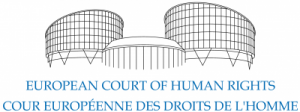Search
News categories
Legal Jurisdiction in Defamation Proceedings: ECtHR rules in Arlewin v. Sweden Case
Legal Jurisdiction in Defamation Proceedings: ECtHR rules in Arlewin v. Sweden Case
 On 1 March 2016, the European Court of Human Rights (ECtHR) found Sweden in breach for having denied access to a court to a person who wanted to bring defamation proceedings in his country of residence arising out of the content television programme (TV3) broadcast from the United Kingdom. For the Swedish courts, the case should have been brought in front of the UK courts because the company responsible for broadcasting the alleged defamatory content (Viasat Broadcasting UK) was based in London, UK.
On 1 March 2016, the European Court of Human Rights (ECtHR) found Sweden in breach for having denied access to a court to a person who wanted to bring defamation proceedings in his country of residence arising out of the content television programme (TV3) broadcast from the United Kingdom. For the Swedish courts, the case should have been brought in front of the UK courts because the company responsible for broadcasting the alleged defamatory content (Viasat Broadcasting UK) was based in London, UK.
The Swedish government based its argument on the country of origin principle enshrined in the Audiovisual Media Service Directive (AVMSD), according to which Ofcom, the communication regulator in the UK, had supervisory jurisdiction over TV3’s broadcast content.
The Strasbourg Court did not follow this argument assuming that:
-
The invoked article 28 AVMSD could not be applicable in the case given that this provision only discusses a right of reply or equivalent remedies and does not deal with defamation proceedings (therefore, exclusion for material and not territorial incompetence).
-
Rather, the Court was of the opinion that the application of the lex generalis in the field is more appropriate, meaning Brussels I Regulation No. 44/2001 and in particular its articles 2 and 5. According to the latter, both the UK and Swedish courts could be competent in the present matter as the harmful event could be argued to have occurred in either country since the television programme was broadcast from the UK, but the alleged injury to the applicant’s reputation and privacy manifested itself in Sweden.
Having in mind these circumstances, the Court unanimously decided that the Swedish authorities had deprived the applicant from his right to contest the allegation of defamation and thus, violated article 6 ECHR which guarantees an effective access to court.
The decision is in line with the CJEU interpretation of articles 2 and 5 of the Brussels I Regulation, allowing courts assuming jurisdiction in a Member State, not only in the place where the defendant has his residence, but also in the place where the harmful event occurred or where the centre of the alleged victim’s interests are based (CJEU, eDate Advertising and Martinez, C-509/09 and C-161/10). The ECtHR extends this interpretation to a programme broadcast via satellite.
- ECtHR, case of Arlewin v. Sweden, Application no. 22302/10 of 1 March 2016
- See also the article by Dirk Voorhoof in the IRIS Newsletter 2016-4